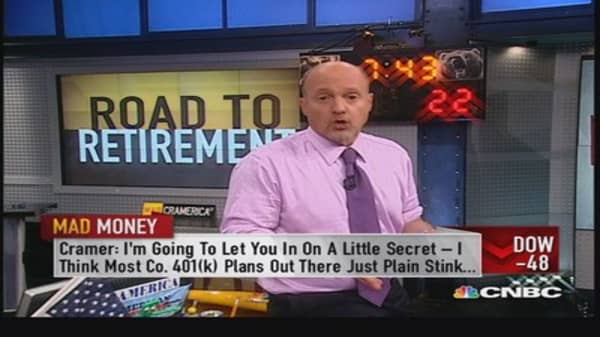Most Americans are downright confused over how to manage their 401(k) retirement plans and want a simpler way to know which investments to make, according to a new survey from investment firm Charles Schwab.
"This is consistent with what we've been hearing from people," said Steve Anderson, executive vice president of Schwab retirement plan services. "Trying to figure out how to take control of the plans can be overwhelming, especially for someone who doesn't have the time or knowledge."
The nationwide survey of 1,000 401(k) participants, released this month, said 52 percent of those polled find explanations of their investment plans more confusing than their company health-care benefits. And 57 percent said they wished there were an easier way to determine how to choose the right 401(k) investments.
(Read more: 11 things about 401(k) plans we need to fix now
Some 46 percent said they don't feel they know what their best investment options are, and 34 percent feel a great deal of stress over correctly allocating their 401(k) dollars.
"I think that's the key part of this survey, the allocation part," said Aron Gottesman, professor of finance at Pace University.
"I think most Americans don't know how to allocate or distribute their assets inside the 401(k)," he said. "Should they go into stocks or bonds, or both? And how much should it be? They're confused."





